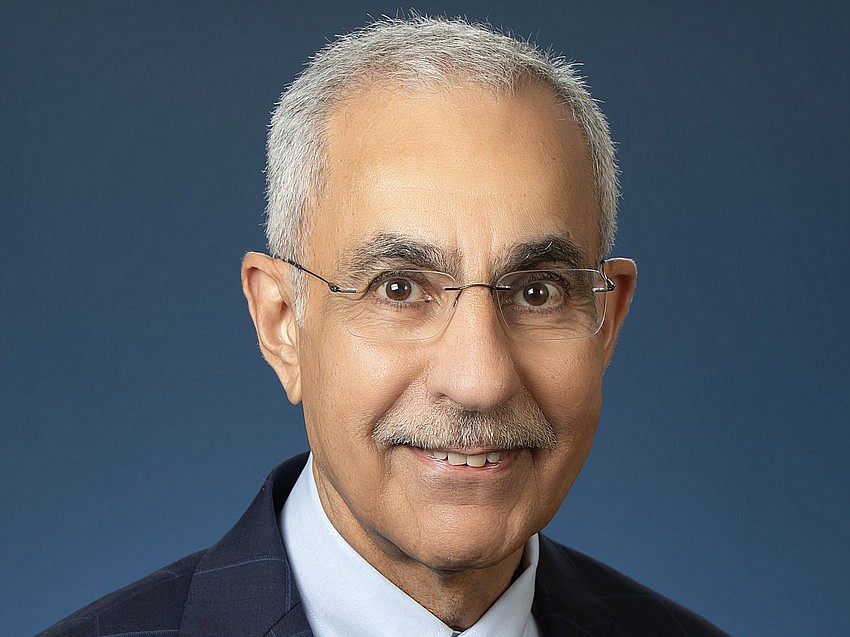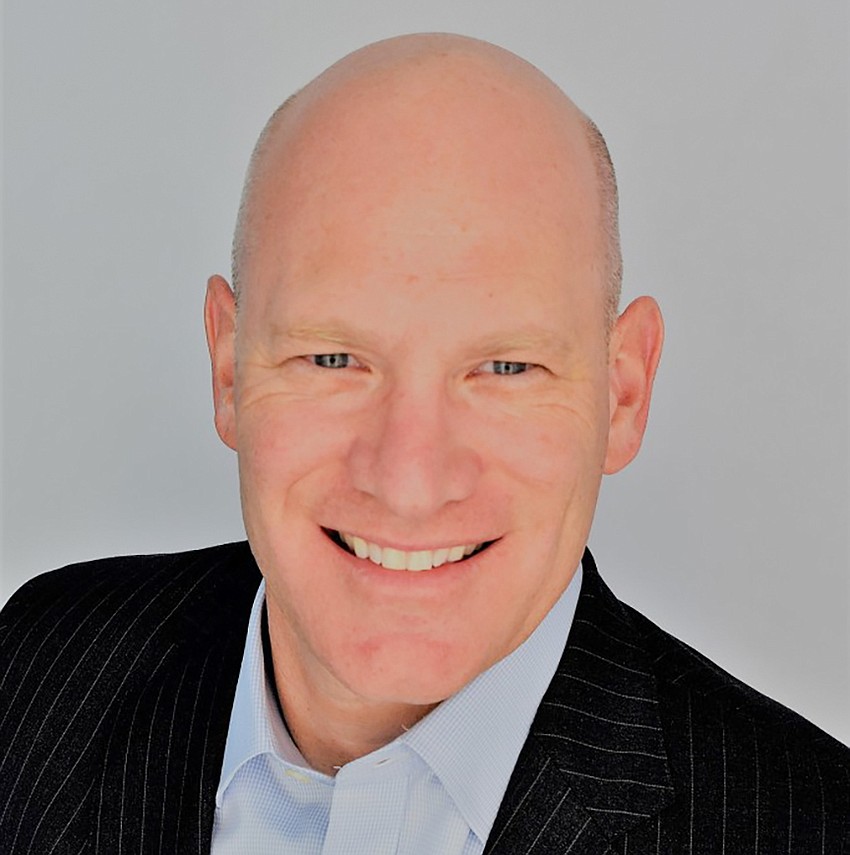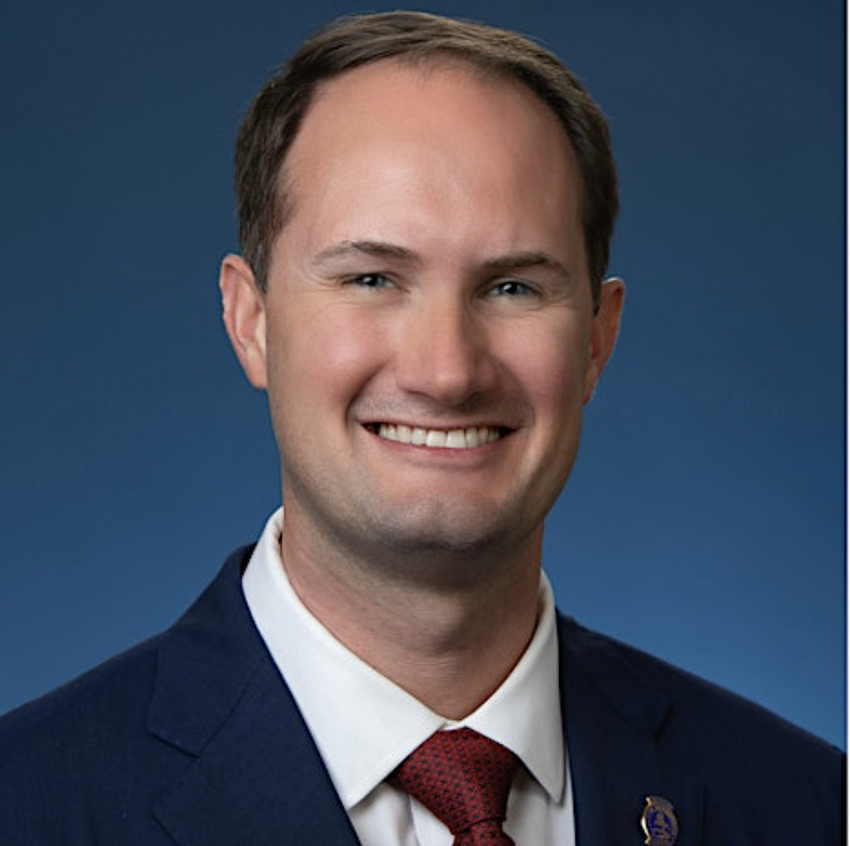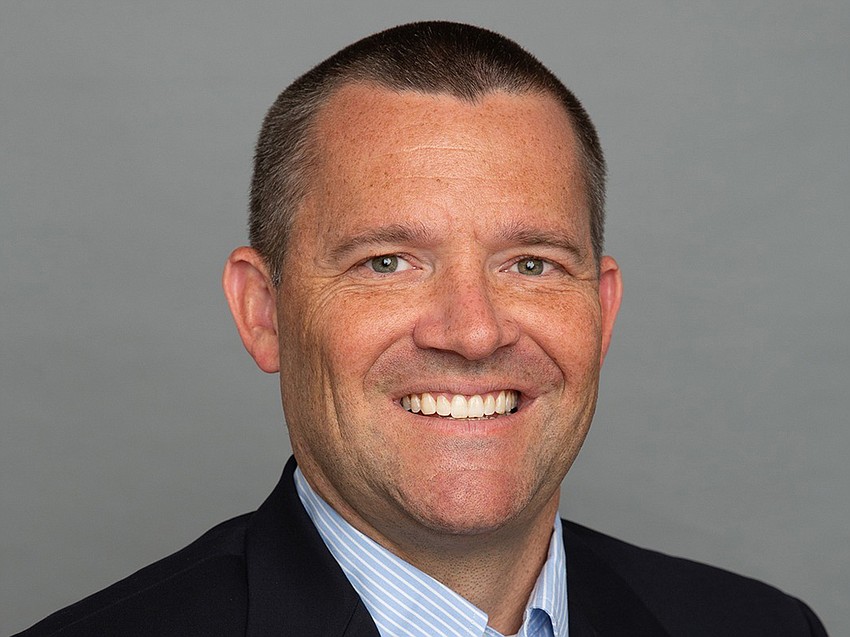
As the Jacksonville City Council begins examining the city’s proposed deal with the Jacksonville Jaguars to build the team’s “Stadium of the Future,” Council President Ron Salem says he will prioritize portions of the agreement that deal with building the project and making it operational.
A community benefit agreement in the deal will come second, he said.
“The community part will not even occur if we don’t get the stadium passed,” Salem said during an interview May 15. “So I will not be focusing on the community benefit portion of this until we get the stadium done.”

The stadium deal comprises seven agreements that include a 30-year lease, construction, parking and the $300 million community benefits agreement.
Salem said that in prioritizing the community benefits element below the others, he wasn’t making a statement about the importance of it.
“It’s just about the timing,” he said. “We don’t have a community benefit program unless we pass a stadium deal, so it just makes no sense to me to put the cart before the horse, so to speak.”
Salem’s remarks came a day after the Council received a presentation on the proposed agreement from Mayor Donna Deegan, her office’s lead negotiator, Mike Weinstein, and Jaguars President Mark Lamping.
Money for housing and more
Deegan has strongly advocated for the community development agreement, in which the city and team would both put up $150 million toward job development and addressing homelessness and affordable housing in the Out East neighborhood near the stadium and elsewhere in Duval County. A portion also would be directed toward development of parks, including Riverfront Plaza and the Shipyards West Park on the Downtown Northbank.
Under other terms of the proposed deal, the city would provide $775 million in public funding to transform EverBank Stadium into the modernized version conceived by the Jaguars. The city’s funding would include a 50-50 split with the team on the estimated $1.25 billion cost of building the stadium, plus $150 million for deferred maintenance and ongoing capital improvements.
In total, the cost is $1.4 billion with the city contributing 55% and the Jaguars paying for any overruns.

Salem said his first impression of the package was favorable, but that he would reserve judgment on the deal until the Council could delve into the details as the individuals agreements start to roll in.
“The 55-45 was a little better than I thought it would be,” he said. “I’m very pleased that the Jaguars are assuming cost overruns on the stadium, which was very positive. And clearly the Jaguars are paying more on maintenance of the stadium long term, as well as the operational expenses for games and concerts that are held in the stadium.
More favorable to taxpayers
Council member Nick Howland said he was pleased by several elements of the deal, including that the lease includes a non-relocation clause and that the Jaguars would cover cost overruns.

Overall, Howland said, he believes the deal is more favorable to Jacksonville taxpayers than their counterparts in Nashville, Tennessee, and Buffalo, New York, where public funding also is being used to fuel stadium projects.
But Howland said he questioned the community benefit agreement and the city’s method for providing its share of the funding.
“By all means, there are infrastructure, affordable housing and other community and economic development needs in our city,” he said.
“But I’d like to see what is already addressed in the Capital Improvement Plan, what’s redundant, what’s new, and how we’re going to finance the elements of those community benefit agreement projects.”
Council member Joe Carlucci said he was “bracing for impact” when the presentation began but was relieved by key elements of it.
“I was kind of expecting the worst, meaning we were going to have to pitch in 65%,” he said.
When Carlucci saw that the city was providing 50% of the costs of construction, it was a pleasant surprise. When he saw that the Jaguars were accepting management responsibility for maintenance, with the city providing $150 million for deferred maintenance and capital improvements, his concerns subsided further.

“That’s good for us, because it frees up our workforce at the city to do maintenance in all of the districts,” he said.
Carlucci also praised the stadium’s design, which includes a rooftop shade that is transparent toward the center but will protect all seating areas from sun exposure. Wider concourses, more food and beverage options and a metallic exterior are among other upgrades.
“I think that what people care about is shade, rain cover, shorter lines, better and cheaper food,” he said.
“That’s what really I think is going to be the biggest impact for the majority of people going into the stadium – widening the concourses, making it easier to get in and out of the stadium and a design where the airflow is way, way better.”
Carlucci said he hoped that with more concession options in the stadium, the team could offer a range of prices.
Questions on funding and more
Like Howland and Salem, Carlucci also came away with questions, including on the city’s proposed funding mechanism.
As explained by Weinstein, the city’s idea involves returning to the original timetable for the Better Jacksonville Plan, a capital improvement fund created by a voter-approved sales-tax increase that was set to expire in 2030.
The sunset for that increase was rolled back to 2026 under Mayor Lenny Curry’s administration, which shifted several projects that were designed to be completed with the additional sales tax revenue to the city’s Capital Improvement Plan, where they’re covered with borrowed funding.
The city would fund the stadium partly by moving projects in the CIP to the Better Jacksonville Plan then fund the stadium improvements through the CIP.

Council members have questioned how that would affect another voter-approved sales tax increase to fill a deficit in the Police and Fire Pension Fund General Employees’ Pension Fund. That tax begins after the Better Jacksonville Plan tax ends.
“I think we’re all going to want to get caught up with this to make sure that this is really isn’t affecting the pensions long term,” Council member Will Lahnen said.
Lahnen said he also had questions about the community benefits plan and how the city’s $150 million contribution for deferred maintenance and capital projects fit into the agreement.
Lahnen said he jotted down more than 20 questions during the presentation, and that was just during the 45-minute overview. Unlike the presentation, which was encapsulated in 37 slides, the full package could exceed 500 pages and will encompass seven agreements covering a 30-year lease, construction, parking, a $300 million community benefit agreement and more.
With so many details to review, and with Lahnen’s 18 colleagues on the Council likely to have questions of their own, and members say they’re gearing up to sort through the agreement.
“I already can read over 20 questions that I have to follow up on. So it’ll be a busy time,” Lahnen said.
Time blocked out
To work through the deal, Salem has blocked out time for meetings on Wednesdays through Fridays for Council members to discuss the agreements within the deal as they’re delivered.
Salem said he hoped to have a vote on the package by June 25 before his term as president expires. But he told Council members he would ensure that there would be no vote until their questions were answered, regardless of whether that happens by the time he leaves the president’s seat.
The Jaguars are hoping the deal can be approved this summer so they can take it to the NFL owners for approval in October.
“I think it seems aggressive to decide on this by the second meeting in June,” Howland said.
“But I don’t see why we couldn’t do it in the second meeting of July. I do see it’s important that to get this deal done on a timely basis that we make a decision then and not too far thereafter, because the NFL owners are meeting in October.”
